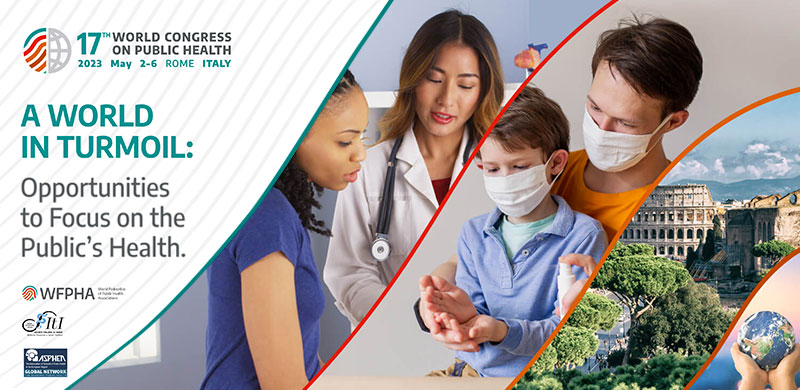
The COVID-19 pandemic emerged as a major global health challenge in late 2019. Around 30 months after its initial outbreak, it has resulted in over 540 million cases and 6.3 million deaths worldwide. The world is now dealing with a syndemic – a consequence of the interconnectedness of various factors, such as inequalities in susceptibility, exposure and transmission of the COVID-19, the interlinked increase of other infectious and degenerative non-communicable diseases, and socio-economic factors such as income, work and housing.
Furthermore, humanity is living in a time of growing hostility, the likes of which it hasn’t seen for several decades, throwing us into the possibility of conflict between powerful countries armed with nuclear weapons – as demonstrated by the conflicts in Ukraine and the Middle East. Meanwhile, countries all over the world are also facing a rise in internal divisions, hate speech, and violence.
More crucially, due to the greenhouse gases fossil fuels emit into the atmosphere, the world’s climate is changing in ways that will render significant parts of the planet uninhabitable for a quarter - or more - of humanity over the next 25 years. Indeed, we are already in the midst of a planetary emergency, as evinced by the intensification of droughts, floods, extreme temperatures, lack of safe water, and reduced agricultural production, leading to increased poverty, famine, massive migration, new diseases and mental disorders.
Fortunately, general awareness is growing, with more people realizing that if all these crises are not overcome - and if we do not make the necessary interventions - life on Earth will perish long before the end of the planet. As history has illustrated, civil society is critical to promoting these sorely needed changes. In 1945, activists pressured heads of state to approve the UN charter as a tool for peace and the promotion of human rights, not only as an agreement restricted to defending the interests of imperial powers. In 2022 and beyond, civil society will play an essential role in pushing forward a vision to end the current economic development model, which now threatens the world.
The public health sphere continues to support civil society activists, advise state leaders, and ground policy in scientific evidence. By centring the social determinants of heath and the promotion of health equity, the field is contributing to co-designing and co-building a new eco-social world that fosters peace, social development for all, and long-lasting life on Earth.
Though a world in turmoil presents a number of threats, it also offers us opportunities to improve the public’s health.
In 2023, the global public health community will convene to discuss these challenges from a multidisciplinary perspective, with diverse voices adding to the conversation, including perspectives from academics and professionals, women and men, older and younger professionals, and those from Black, Asian, and Caucasian communities and Indigenous Peoples.
Join the 17th World Congress on Public Health on May 02-06, 2023, in Rome!
---------------------------
Author: Luis Eugenio Souza,President of the World Federation of Public Health Associations (WFPHA), 2022-2024.




